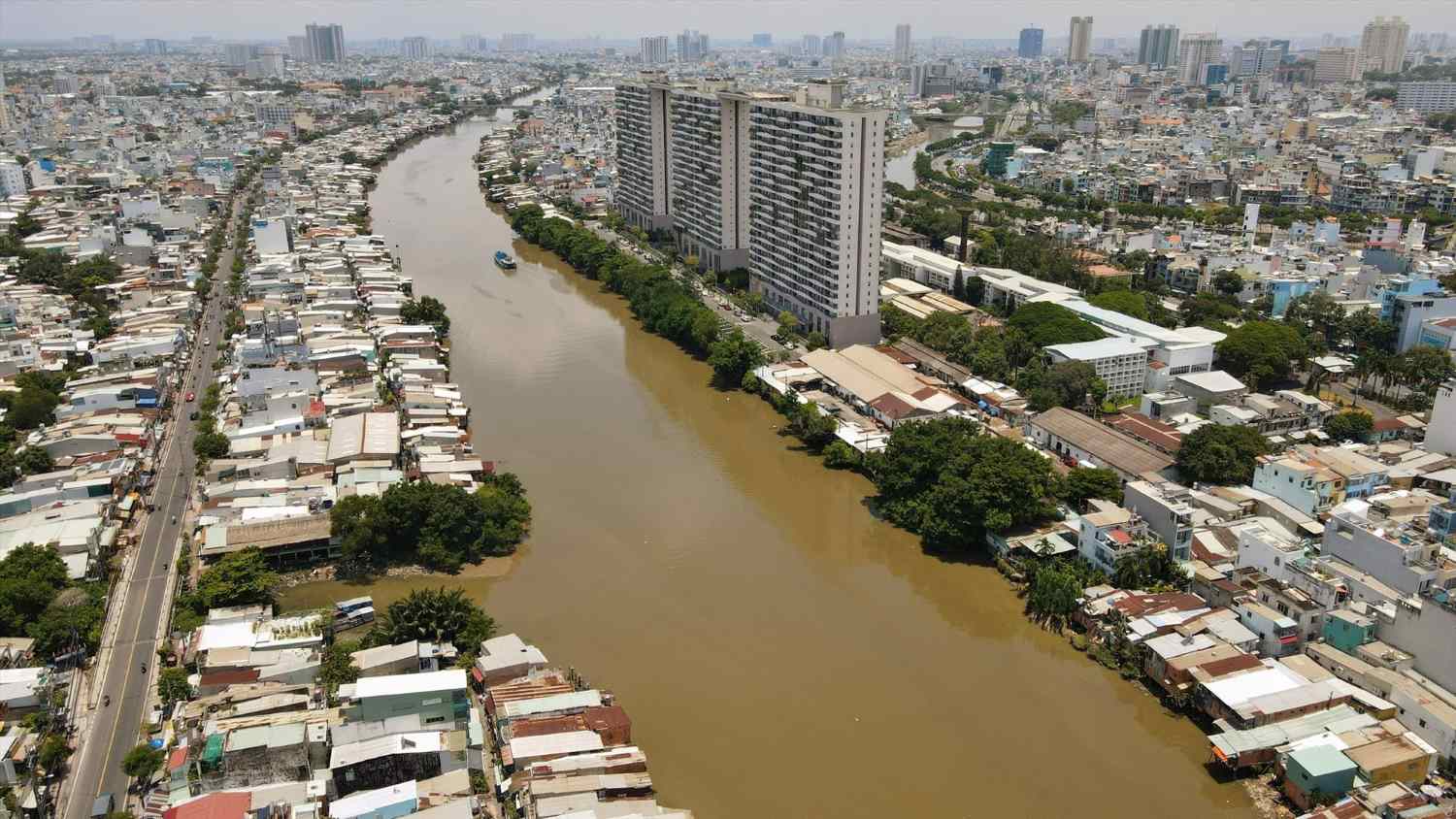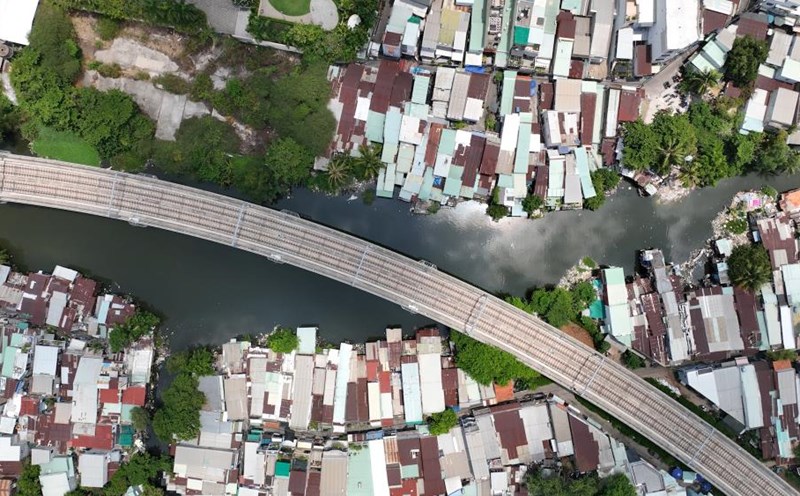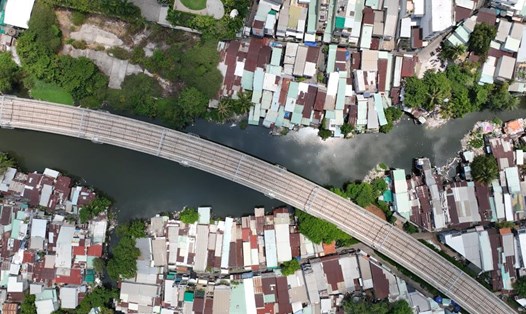On May 28, the Ho Chi Minh City Department of Construction submitted to the Ho Chi Minh City People's Committee a project to renovate houses on and along rivers, canals, and ditches in the city for the period 2025 - 2030.
According to the project, the entire Ho Chi Minh City currently has 398 rivers, canals and ditches that have not been renovated, located in 16 districts, towns and Thu Duc City (District 4, 6, 7, 8, 12, Binh Thanh, Go Vap, Tan Binh, Tan Phu, Binh Tan, Binh Chanh District, Hoc Mon, Cu Chi, Nha Be, Can Gio and Thu Duc City).
The total scale of relocation in these areas is estimated at about 39,600 houses.
According to the Department of Construction, one of the biggest challenges when implementing the project is compensation and site clearance. Most households living along rivers, canals and ditches have weak land and housing legal status; many cases of construction on encroached land or within the canal protection corridor, so they are only supported but do not meet compensation conditions. Low support value makes it difficult for people to buy resettlement houses, leading to many obstacles in handing over the site.
The project aims to improve the quality of urban planning and design, while effectively exploiting land funds along river corridors, canals, and ditches after clearance to develop parks, eco-tourism and services associated with green space, create commercial value and attract socialized resources.
Ho Chi Minh City will focus on developing resettlement housing and social housing funds to ensure new housing for people. The city plans to mobilize diverse resources from the budget, businesses and public-private partnerships (PPP), prioritizing implementation in key areas to create influence.

Regarding finance, medium-term public investment capital for the period 2026 - 2030 will be allocated to serve the relocation, site clearance and construction of resettlement houses. Enterprises are also encouraged to participate in developing social housing, increasing flexibility and diversifying supply sources.
Regarding compensation and resettlement policies, the city is committed to implementing legal procedures properly, while combining budget capital and socialization to build a resettlement housing fund. At the same time, policies to support people to stabilize their lives will be implemented, including financial support, vocational training, job introduction and connecting with businesses.
Regarding social security, Ho Chi Minh City will implement support programs after relocation such as exemption, reduction of tuition fees, electricity and water, support for livelihoods, preferential loans to start a business or expand production. The city also aims to develop occupations suitable for each locality such as handicrafts, services and urban agriculture.
Regarding the implementation roadmap, in 2025, Ho Chi Minh City will complete the overall renovation project, collect opinions from relevant parties and submit for approval, and review and adjust the 1/2000 zoning plan in areas expected to be renovated.
In the period of 2025 - 2026, Ho Chi Minh City will develop and approve detailed projects on relocation, construction of resettlement houses, social housing and implementation of investment procedures.
From 2026 to 2027, resettlement housing projects will be started, in parallel with land acquisition, compensation and site clearance.
In the 2028 - 2030 period, the remaining projects will be focused on completing, building technical infrastructure, transportation, drainage systems, embankments, parks, public spaces, and at the same time bidding and auctioning land funds formed after clearance.
By 2030, Ho Chi Minh City aims to basically complete the relocation and resettlement of people living on and along rivers, canals and ditches.










